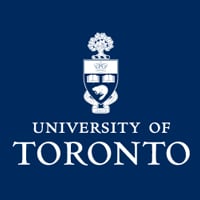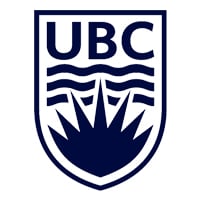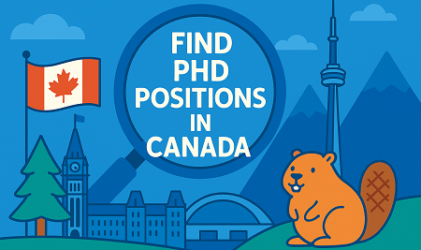For those who are keen to delve deeply into their field and advance global knowledge, pursuing a PhD in Canada is a life-changing experience. Canada is a popular destination for doctoral studies because of its standing as a center for outstanding research and vibrant multiculturalism. A PhD in Canada provides access to state-of-the-art facilities and a diverse academic community at more than 90 research universities. This degree is a springboard to meaningful careers for both domestic and foreign students. Over four to six years, PhD programs in Canada combine coursework, teaching, and dissertation work with an emphasis on original research. This article examines the programs, expenses, prerequisites, and employment opportunities that make a PhD in Canada an appealing option.
PhD in Canada: Structures, Duration, Requirements
Types of PhD Programs in Canada
Structured PhD Programs in Canada
Similar to the PhD in USA, there are no individual PhDs in Canada because all are fully structured programs. This implies that all PhD positions must be applied for using the university’s departmental application forms. These structured PhD programs attract hundreds of applicants, and tens of them are awarded scholarships or assistantships. In Canadian PhD programs, students complete coursework, pass final exams, pass a research proposal defense at the end of the second year, and engage with the academic community through seminars. Moreover, their primary responsibility is conducting research, writing a dissertation, and passing the PhD viva. This stage entails an in-depth investigation, data analysis, and the development of a PhD dissertation that contributes new knowledge to their field.
A full-time PhD duration in Canada is 4 to 6 years, including the coursework for 1 to 2 years and final exams at the end of each semester. PhD programs in Canada, in contrast to those in the US, emphasize original contributions and are research-focused from the start. A PhD supervisor guides students and provides instruction in teaching techniques and research methodologies. Some programs also offer internships. Cohort models are frequently used in Canadian PhD programs, encouraging peer collaboration. For instance, the Interdisciplinary Social Research PhD program at Trent University promotes collaboration.
Direct PhD in Canada: Can you do a PhD in Canada without a master’s?
In Canada, outstanding bachelor’s degree holders with independent research experience can skip the master’s degree and start their doctoral studies right away, thanks to direct-entry PhD programs. Usually, these programs are offered in various fields, such as life sciences, engineering, and computer science. The University of Toronto, the University of British Columbia, McGill University, the University of Waterloo, and numerous other prestigious universities provide direct admission to PhD programs. Let’s examine the procedures for accepting direct PhD applicants at the University of Waterloo and its Department of Electrical and Computer Engineering as an example:
Their graduate office says:
Exceptional master’s applicants may be considered for direct entry to the PhD program from a bachelor’s program. For more information, please contact the Department Graduate Coordinator.
Their Department of Electrical and Computer Engineering Says:
Direct Entry PhD (from a Bachelor’s degree) Details
- 7 courses
- Original research
- Thesis
- 5 years (15 terms)
- Full-time and part-time study available
- Choose from 14 areas of specialization, or apply to the collaborative programs in Nanotechnology or Quantum Information
Direct Entry PhD (from a Bachelor’s degree) Admission Requirements
- Exceptional Bachelor’s applicants may be considered for direct-entry to the PhD program from a Bachelor’s program. Depending on your application, academic background and research experience you may be admitted or considered for an offer to our Masters of Applied Science program.
- An overall standing equivalent to 83% in a relevant bachelor’s degree.
- Evidence that the applicant is capable of independent research at an advanced level in a relevant field
- For degrees completed outside of Canada, refer to the international admission equivalencies web page.
Admission PhD Requirements in Canada
Although direct-entry PhD in Canada options are only available for exceptional bachelor’s graduates, a master’s degree in a related field is normally required to pursue a doctorate in Canada. Standard PhD requirements in Canada include a thorough research proposal, research experience, and a GPA of 3.0 or above. A statement of purpose and recommendation letters are essential. In the post-COVID-19 era, some programs do not require the GRE. For non-native speakers, English proficiency (TOEFL 90+ or IELTS 6.5+) is required. Keep in mind that Quebec accepts the results of French tests. In Canada, a PhD requires a solid academic background.
How to Apply for PhD in Canada
A PhD in Canada application requires a CV, transcripts, two to three recommendation letters, and an online form. The importance of your project should be outlined in a research proposal, and you should get in touch with possible PhD supervisors in advance. The majority of deadlines fall between December and April, though they can vary (usually spring for fall starts). Interviews may ensue, frequently conducted through Zoom and Teams. Specifics can be found on university websites, as requirements vary. UBC, for instance, places a strong emphasis on supervisor alignment. Applying for a doctorate in Canada is your opportunity to demonstrate your enthusiasm and preparedness. Always remember that clarity and precision increase your chances.
The application process for a PhD in Canada typically involves filling out an online departmental application form. An academic CV and academic transcripts from previous universities should be submitted. Letters of recommendation (usually 3) from previous or current master’s advisors, master’s research supervisors, or employers are required. A statement of purpose (SOP) outlining research interests and career goals is necessary. Some PhD programs in Canada may require additional requirements, such as a writing sample or a PhD interview (usually for RA-funded positions). Finally, pay the application fee and officially submit the form.
Applyindex gives PhD applicants a single, smart platform to manage and navigate their process when applying for a PhD in Canada. It effectively and consistently assesses the quality of your resume, calculates your likelihood of receiving funding, creates a data-driven Word document of your resume, demonstrates how to locate a supervisor who has research grants, emails them automatically on your behalf, arranges your notes, and performs numerous other tasks during your application process. Read the article “How Applyindex works for applicants” for details.
PhD Canada: From Orientation to PhD Dissertation Submission
Upon arriving in Canada, you will complete your registration at the university where you have been accepted as a new PhD student. Most Canadian universities organize Graduate Orientation Week (Grad O-Week) or Graduate Student Orientation, designed to help new graduate students settle into the academic and social environment. This event introduces you to campus facilities, academic resources, and university policies. If you hold a Research Assistantship (RA)-funded position, this period is also an opportunity to meet your PhD supervisor and research group, explore your lab, and prepare for the research phase ahead.
However, if you are self-funded or supported by a Teaching Assistantship (TA), you will participate in lab or supervisor rotations throughout the first year before selecting your permanent supervisor and defining your research direction. During the first one to two years of your PhD in Canada, your focus will primarily be on completing coursework requirements and passing your comprehensive or qualifying exams, which assess your readiness to conduct independent research. Once your coursework and exams are completed, typically by the end of the second year, you will prepare and defend your PhD research proposal before a committee. This defense formally validates your PhD candidacy and authorizes you to proceed with your dissertation research.
As you progress into the research phase, you will continue to collaborate closely with your supervisor and research team, publish papers, and present your findings at academic conferences. The final milestone of your PhD in Canada is the dissertation defense (PhD viva), where you present and defend your research before an academic committee. A successful defense, followed by the submission of your final PhD dissertation, marks the official completion of your PhD studies in Canada.
Top Universities to Find PhD in Canada
PhD in Canada at University of Toronto
With 19,000 graduate students, the University of Toronto, which is ranked 19th in the world (a-index Global University Rankings 2025), is a leader in PhD Canada. With specializations in AI and public health, it’s more than 80 PhD programs in Canada that cover the humanities, engineering, and medicine. With 700 research labs and industry connections, the campus is tucked away in bustling Toronto. It is a center for innovation. With stipends of up to 15,000 CAD, funding such as the Ontario Graduate Scholarship helps students. A PhD program at U of T in Canada combines cutting-edge research with tradition. A network of 600,000 alumni, including Nobel laureates, is joined by graduates.

PhD in Canada at University of British Columbia (UBC)
A popular option for a PhD in Canada, UBC, which is situated in picturesque Vancouver, is ranked 62nd (a-index University Rankings 2025). With 10,000 graduate students, it has 60 PhD programs in Canada that cover a variety of topics, including genomics and environmental science. Research facilities at UBC, such as the Bamfield Marine Sciences Centre, have an international influence. It is the intersection of knowledge and nature. A PhD at UBC in Canada is financially feasible thanks to the Four-Year Doctoral Fellowship, which offers 18,200 CAD per year. Thirty percent of doctoral candidates are foreign, demonstrating how well international students do here. UBC equips you for leadership roles in academia or business.

PhD in Canada at McGill University
When it comes to a PhD in Canada, McGill University in Montreal, which is ranked 46th (a-index University Rankings 2025), excels, especially in the social sciences and neuroscience. 10,000 graduate students are supported by its 50 PhD programs in Canada, which provide access to state-of-the-art labs like the Douglas Research Centre. Cultural depth is added by the bilingual campus. It is a worldwide academic treasure. International students are supported by funding, such as the Vanier CGS. Global connections and interdisciplinary research are fostered by a PhD program at McGill University in Canada, making its PhD graduates excel in academic and policy roles.

PhD in Canada by Discipline
Obtaining a PhD in Canada opens doors to a broad range of fields, each catered to individual academic interests and professional goals. Top Canadian universities, including the University of Toronto and UBC, provide PhD programs that combine rigorous research with an international influence. A successful doctoral journey depends on selecting a field that fits with your interests and long-term objectives. The choices are numerous and ever-changing, ranging from business to the natural sciences. The research focus, career paths, and admission requirements vary by discipline within a doctorate in Canada. It is crucial to investigate faculty expertise and employment opportunities in your field of choice.
PhD in Business in Canada
Students who earn a PhD in business management are prepared for leadership roles in academia, research, or consulting. Business management PhD programs in Canada emphasize advanced analytical skills in fields like organizational behavior, finance, and strategic management. Students conduct their own independent research and add to theories that influence various industries. The Rotman School at the University of Toronto and the Sauder School at UBC are at the forefront of business innovation in Canada. Business management PhD programs in Canada usually last 4 to 6 years and combine original research with marketing or economics coursework, finishing with a dissertation. Practical impact is increased through cooperation with industry partners, such as banks or tech companies.
PhD in Engineering in Canada
Innovation is fueled by a PhD in engineering in disciplines like sustainable energy, robotics, and civil engineering. Labs focusing on AI or green technology lead PhD Canada at universities like Waterloo and the University of Toronto. Students work on projects that have practical uses, such as smart cities. Engineering PhD programs in Canada consist of coursework, final exams, research proposal defense, lab work, and a dissertation, and last 4 to 6 years. Programs now place a strong emphasis on AI integration and sustainability. An engineering PhD increases employability by providing internships with tech giants. PhD engineering graduates make a real difference and influence the direction of technology by leading industry projects or innovating in labs.
PhD in Social Sciences in Canada
PhD programs in the social sciences delve deeply into societal dynamics and human behavior, covering disciplines like anthropology, psychology, and sociology. In Canada, a PhD program in this field entails conducting original research on topics like mental health and inequality. Universities with state-of-the-art labs and archives, such as McGill and UBC, are the leaders. PhD programs in the social sciences in Canada last 4 to 6 years and include coursework, comprehensive tests, and a dissertation. It is typical for PhD students in social sciences to work together with community organizations or the Canadian government. A PhD in Canada in the social sciences opens up a variety of career options by combining impact and curiosity.
PhD in Humanities in Canada
A doctorate in the humanities provides a thorough examination of philosophy, literature, or history while critically examining the human condition. Canadian humanities PhD programs at institutions like McGill or Alberta place a strong emphasis on cultural studies or archival research, which is essential in today’s interconnected world. Humanities PhD programs in Canada last 4 to 6 years and consist of theory or methodology coursework followed by a dissertation. You may study postcolonial literature or Indigenous narratives at UBC, frequently giving presentations at international conferences. Digital humanities, which use AI to analyze data, are becoming more popular these days. Working together enhances your work. A PhD in Canada in the humanities develops critical thinkers who influence how society perceives things.
PhD in Quebec, Canada
Quebec, Canada’s largest French-speaking province, hosts world-renowned universities such as McGill University, Université de Montréal (UdeM), Université Laval, Concordia University, and Polytechnique Montréal. The province combines European academic traditions with North American innovation, making it a distinctive destination for pursuing a PhD in Canada. Quebec universities excel in disciplines like engineering, health sciences, and humanities, offering both English- and French-language doctoral programs. While McGill and Concordia mainly teach in English, UdeM, Laval, and Polytechnique conduct most PhD programs in French. Therefore, proficiency in French demonstrated through exams such as DELF, DALF, or TEF is often required for admission. Studying in Quebec offers international students a rich cultural experience, affordable tuition, and generous funding opportunities.
How to Find a PhD in Canada
University websites are the primary sources to find a PhD in Canada, providing detailed information about selection criteria, application requirements, and deadlines. In addition, centralized online platforms such as Applyindex, PhD Portal, FindAPhD, and Academic Positions are valuable resources for exploring PhD programs across Canada. These platforms list both funded and unfunded programs. After your application is reviewed by the departmental admissions committee, you will be informed whether you have received funding and what type it is, such as an RA or TA. Setting up alerts on these platforms helps you stay informed about newly posted programs, while checking multiple sources increases your chances of finding the right PhD position in Canada.
Costs of Self-funded PhD in Canada
In contrast to the US, where annual tuition for a PhD can reach 35,000 USD, the average cost of tuition for international students in Canada is between 6,000 CAD and 20,000 CAD. Further financial relief is offered by some prestigious Canadian universities, like the University of Toronto, which even waives additional international student fees. Depending on the city, living expenses in Canada typically range from 15,000 CAD to 25,000 CAD per year. While cities like Winnipeg are more affordable, Vancouver is typically more expensive. It is crucial to carefully budget for housing, food, transportation, and health insurance. A doctorate in Canada is both affordable and achievable with the aid of scholarships, TAs, or RAs.
Funding Options for a PhD in Canada
For exceptional students in the sciences, humanities, or health, Canadian PhD programs provide generous funding, such as the Vanier Canada Graduate Scholarship (Vanier CGS). Canadian citizens, permanent residents of Canada, and international students are eligible to be nominated for a Vanier CGS. International applicants from developing countries are welcome to apply for up to 50,000 CAD annually from the Pierre Elliott Trudeau Foundation. Likewise, most Canadian universities offer TAs and RAs that provide stipends to cover living costs. Tuition waivers are automatically included in many PhD programs in Canada, particularly in fields that require a lot of research. Research in science and engineering is supported by industry partnerships and funding, such as NSERC grants (21,000-35,000 CAD/year).
Canadian Visa Requirements for International Students
To start a PhD in Canada as an international student, you must obtain a Canadian Study Permit, which serves as your student visa. The permit allows you to stay in Canada for the full duration of your PhD program, typically 4 to 6 years. Before applying, you must have a Letter of Acceptance from a Designated Learning Institution (DLI). Applications are submitted online through Immigration, Refugees and Citizenship Canada (IRCC), and processing times usually range from three to twelve weeks, depending on your location and documentation. Applicants must demonstrate proof of sufficient financial capacity, currently estimated at a minimum of 20,635 CAD per year for living expenses, in addition to tuition and travel costs.

You will also need to provide proof of English or French language proficiency, unless you have completed previous education in English or French. In addition, applicants must show evidence of a clean criminal record, pass a medical examination, and be able to prove intent to return home after their studies unless pursuing permanent residency later. The Canadian government also requires proof of health insurance coverage, which may be provided through provincial healthcare (available in some provinces, such as Alberta and British Columbia) or through university-sponsored plans. It’s recommended to apply for your study permit at least 180 days before your intended start date to allow time for document verification and biometrics appointments.
Can You Work During a PhD in Canada?
Yes. International students pursuing a doctorate in Canada are permitted to work up to 20 hours per week during academic sessions and full-time during scheduled breaks, both on and off campus, without needing a separate work permit. The average hourly wage is between 15 and 25 CAD, allowing students to earn around 1,200 to 2,000 CAD per month, depending on their workload and province. Many universities also offer paid teaching assistantships (TA) or research assistantships (RA), which can significantly supplement your income and professional experience. These positions often align directly with your research area, helping you gain academic and industry-related skills.
What Are Benefits of Choosing a PhD in Canada?
Canada’s Global Research Excellence
For those seeking academic depth, professional advancement, and international recognition, we recommend pursuing a PhD in Canada, as it is a wise investment. With Canada ranking #4 in the world for scientific output, a PhD there places you among the top global researchers. According to the 2025 QS rankings, universities like the University of Toronto and UBC are leaders in domains like AI and health sciences. Canada’s PhD programs encourage creativity, and their research generates billions of dollars for the country’s economy. A PhD in Canada broadens the scope of your research by connecting you to international networks. Thus, it provides a wealth of networking opportunities within academic institutions as well as among national and international research communities.
Career Prospects After a PhD in Canada
With opportunities in research institutions, industry, government, and international organizations, a PhD in Canada improves your employment prospects both inside and outside of academia. Particularly in high-demand industries like artificial intelligence, engineering, biotechnology, and health sciences, graduates enjoy competitive salaries at Google, Shopify, IBM, Novartis, and other companies. In Canadian universities, about 30% of PhD graduates go on to become professors, lecturers, or postdoctoral researchers. Pursuing a PhD in Canada is a springboard for long-term personal and professional success, especially when combined with the country’s excellent healthcare and educational systems, inclusive society, and high standard of living.
With salaries ranging from 100,000 CAD to 200,000 CAD, Canadian business PhD graduates frequently land faculty positions or work as industry strategists. Canadian humanities PhD graduates make between 70,000 CAD and 120,000 CAD working in academic institutions, museums, or cultural preservation. Social science PhD graduates earn between 80,000 CAD and 150,000 CAD for jobs in academia, policy analysis, or non-governmental organizations. Engineering PhD graduates land jobs in government, business, or academia, earning between 90,000 CAD and 180,000 CAD. Canadian natural science PhD graduates (e.g., a PhD in Chemistry) make between 80,000 CAD and 160,000 CAD working in research institutes, academia, or the pharmaceutical industry.
Canada’s Multicultural and Inclusive Environment
Every year, more than 22,000 international PhD students are welcomed into Canada’s cosmopolitan society, fostering a thriving academic community. With universities in places like Vancouver and Montreal embracing inclusivity, pursuing a PhD in Canada immerses you in a diverse culture. Assistance for overseas students, like language classes and visa counseling, guarantees a seamless transition. A PhD in Canada represents a range of viewpoints, from Trent University’s Indigenous-focused programs to McGill’s global health research. This diversity broadens your perspective and enhances your education. A doctorate in Canada provides a straightforward route to permanent residency and work permits after graduation. All together, it is a springboard to both long-term career success and a happy life.
Immigration Opportunities After PhD in Canada
For PhD graduates, Canada offers a straightforward and advantageous immigration pathway. International students can apply for the Post-Graduation Work Permit (PGWP), which permits them to work in Canada for a maximum of three years after graduation. You should apply for your PGWP within 180 days of confirmation that you completed your program of study. Gaining Canadian work experience during this time is essential for enhancing one’s eligibility for provincial nominee programs like Ontario’s PhD Graduate Stream or permanent residency programs like the Express Entry system. These immigration routes are some of the most easily accessible in the world and are intended to retain talent from around the world.
Conclusion
For students looking for a top-notch education, a variety of research opportunities, and a friendly atmosphere, pursuing a PhD in Canada is a great option. Canada offers both academic and professional rewards with its highly regarded universities, ample funding options, and straightforward paths to permanent residency. Students in business, engineering, social sciences, and the humanities gain from state-of-the-art research facilities, knowledgeable faculty, and a welcoming academic environment. A PhD program in Canada combines creativity, affordability, and international cooperation to enable researchers to significantly impact their fields and society at large. This makes the PhD in Canada more than just an academic achievement; it is a life-changing experience.




